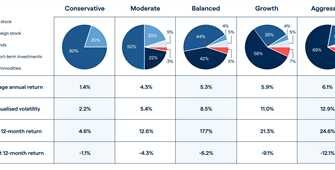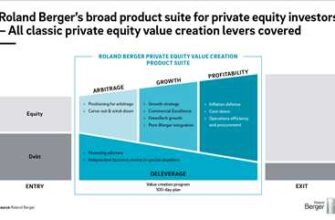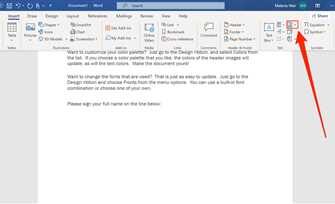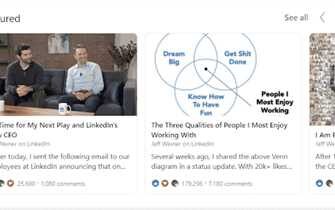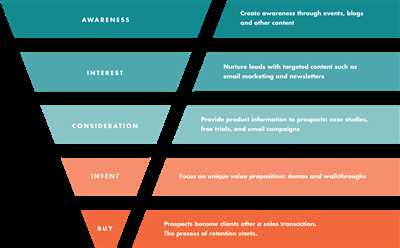
Product awareness is an important aspect of any marketing strategy. It helps build brand recognition and drives sales. But what exactly is product awareness and why is it so crucial for businesses?
Product awareness is the level of familiarity and recognition that customers have with a particular product or brand. It is what keeps your brand in the front of customers’ minds when they are in need of a product or service that you offer. When customers recognize and value your brand, they are more likely to choose your products over competitors’.
There are several strategies you can use to generate product awareness. One of the most popular and effective strategies is using digital marketing tools and platforms. Online communities and social media play a significant role in increasing brand visibility and recognition. By using these platforms, you can reach a wide audience and learn more about your customers’ needs and preferences.
Another way to boost product awareness is to build trust with your customers. Trust is a key driver of loyalty, and loyal customers are more likely to recommend your products to their family and friends. To build trust, you need to provide a high-quality customer experience, deliver on your promises, and be open to feedback and communication.
It’s important to note that product awareness doesn’t directly translate into sales. However, it does lay the foundation for a successful sales strategy. When customers are already familiar with your brand and recognize its value, they are more likely to consider purchasing your products. It adds credibility and reduces the risk factor that customers may have when trying something new.
So, how do you get started with creating product awareness? The first step is to know your target audience and understand what drives them. Look for opportunities to break through the noise and find unique strategies that will resonate with your customers. Don’t forget to measure the success of your product awareness efforts so that you can identify what works and what needs improvement.
Product awareness plays a vital role in marketing, and it’s something that all businesses should focus on. By building brand recognition and visibility, you can increase customer trust and loyalty, which ultimately leads to higher sales.
- Digital Marketing Strategies That Boost Brand Awareness
- What is brand awareness
- Why is brand awareness important
- How to measure brand awareness
- What Role Does Brand Awareness Play in Sales
- Keeps Your Brand in Front of Your Audience
- Builds Trust with Your Customer
- Adds Value to Your Products
- How to get started with your brand awareness strategy
- Don’t forget loyalty
- Video:
- #1 Brand Awareness Strategy [To Build Your Brand In 2023]
Digital Marketing Strategies That Boost Brand Awareness
In today’s digital age, brand awareness is more important than ever. Building a strong brand presence not only helps you stand out among competitors but also builds customer loyalty and trust. Here are some digital marketing strategies that can help boost brand awareness:
- Social Media Marketing: Utilize popular social media platforms to reach a wide audience. Create engaging content that encourages users to like, share, and follow your brand. This increases your brand’s visibility and allows you to directly engage with your target audience.
- Content Marketing: Produce valuable and educational content that your target audience will find useful. By providing valuable information, you position your brand as an industry expert, which helps build trust and credibility.
- Influencer Marketing: Collaborate with influencers in your industry who have a large and engaged following. Partnering with them will expose your brand to their audience, increasing brand recognition and credibility.
- Search Engine Optimization (SEO): Optimize your website and content to rank higher in search engine results. When potential customers search for products or services related to your brand, they’ll be more likely to find and recognize your brand.
- Paid Advertising: Make use of online advertising platforms like Google Ads or social media ads. By targeting specific demographics, you can reach potential customers who may not be aware of your brand yet.
- Email Marketing: Build an email list of interested customers and send them regular newsletters or promotional emails. This keeps your brand in their mind and informs them about new products, offers, or updates.
- Community Engagement: Engage with your target audience and industry community by participating in online discussions, forums, or Q&A platforms. By providing value to the community, you establish your brand as a trusted source and gain recognition.
- Customer Experience: Providing an exceptional customer experience is crucial in building brand awareness. Happy customers are more likely to recommend your brand to their friends and family, which generates word-of-mouth marketing and increases brand recognition.
Remember, building brand awareness takes time and consistent effort. Don’t forget to track and analyze the results of each strategy to optimize your marketing efforts and ensure you’re reaching your target audiences effectively.
What is brand awareness
Brand awareness is the level of recognition that a brand has among its target audience. It is the extent to which consumers are familiar with a brand and can identify it when they see it. Building brand awareness is a crucial aspect of marketing because it plays a significant role in driving sales and increasing customer loyalty.
When you create brand awareness, you make your brand more visible to your target audience. This visibility can come from various drivers, such as advertising, social media presence, online marketing strategies, and community engagement. In the digital age, brand awareness can be boosted by using popular online platforms and using digital marketing strategies to reach a wide audience.
Brand awareness adds value to your products or services because it helps consumers recognize and trust your brand. When customers already know and trust a brand, they are more likely to choose it over competitors. Brand awareness also builds loyalty among customers, as they feel a connection to the brand and are more likely to continue purchasing from it.
One of the most effective ways to generate brand awareness is through word-of-mouth. When people talk about your brand and recommend it to others, it can significantly increase brand visibility. Social media platforms play a significant role in this because they allow people to share their experiences with your brand with their friends and family.
Another strategy to build brand awareness is by using influencers. Influencers have a large following on social media and can help promote your brand to their audience. By partnering with influencers, you can reach new audiences and increase your brand recognition.
Brand awareness is also measured by metrics such as brand recognition and recall. Brand recognition refers to how well consumers can identify your brand when presented with visual cues. Brand recall, on the other hand, measures how well consumers can remember and recognize your brand without any prompt.
In conclusion, brand awareness is crucial for any business because it increases visibility, builds trust, and drives sales. By utilizing various marketing strategies and tactics, you can create brand awareness and ensure that your target audience knows and recognizes your brand.
Why is brand awareness important
Brand awareness plays a critical role in the success of any business. It is the value that a brand builds over time, and it generates trust and recognition among customers. When customers are aware of your brand, it keeps your products and services in their mind. They are more likely to choose your brand over others when they need a particular product or service.
For example, let’s say you’re looking to buy a new laptop. There are many brands available on the market, but if you’re already familiar with a brand and have had a positive experience with their products in the past, you’ll be more inclined to choose that brand again. This is the power of brand awareness and its impact on consumer decision-making.
But why is brand awareness so important? One of the main reasons is that it adds visibility to your brand. When customers recognize your brand, they begin to trust and have confidence in your offerings. This leads to increased sales and customer loyalty.
Another reason why brand awareness is crucial is because it helps you stand out from the competition. In a world where there are so many brands and products vying for attention, having a strong brand presence can make a significant difference. It sets your brand apart and makes it more memorable.
Brand awareness also plays a vital role in digital marketing strategies. With the rise of online communities and social media, brands have more opportunities than ever to connect with their audience. By increasing brand awareness through these channels, you can boost engagement and build a loyal following.
How to measure brand awareness
Measuring brand awareness can be challenging, but there are ways to gauge it. One of the most popular metrics is through brand recognition. This involves testing how well your target audience can recognize and remember your brand without any prompting.
Another way to measure brand awareness is through surveys and questionnaires. By asking questions about your brand and comparing the responses to your competitors, you can get a sense of how well known and trusted your brand is.
Lastly, by looking at online engagement metrics such as website traffic, social media followers, and online mentions, you can track the visibility and reach of your brand in the digital space.
In conclusion, brand awareness is important because it drives customer trust, loyalty, and sales. It helps your brand stand out in a crowded marketplace and allows you to connect with your audience on a deeper level. So, if you want to build a successful brand, don’t forget the role that brand awareness plays in your overall marketing strategy.
What Role Does Brand Awareness Play in Sales
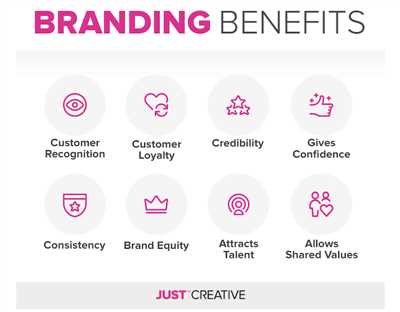
Brand awareness plays a crucial role in driving sales for a company. When customers are familiar with a brand and recognize it, they are more likely to consider purchasing its products. This is because brand awareness creates trust and loyalty among customers who have had positive experiences with the brand in the past.
Having a high level of brand awareness is important because it keeps your brand at the front of customers’ minds. When they are in need of a particular product or service, they are more likely to think of your brand first due to the recognition and trust that has been built.
One of the key drivers of brand awareness is marketing strategies. By using various marketing tactics, such as advertising, social media, and content marketing, companies can generate visibility and reach a wider audience. This not only increases brand awareness but also helps to generate interest and curiosity in potential customers.
For example, an online company could use digital strategies like search engine optimization (SEO) and pay-per-click (PPC) advertising to ensure their brand appears when customers search for related products or services. This increases the chances of getting their brand in front of the right audience and driving sales.
Brand awareness also adds value to products. When customers recognize a brand, they associate it with certain qualities and attributes that they appreciate. This can include things like quality, reliability, or a specific image or lifestyle that the brand represents.
Building brand awareness takes time and consistent effort. It requires a strategic approach that combines different marketing channels and tactics that are tailored to the target audience. By doing so, companies can generate brand recognition, loyalty, and ultimately, increase sales.
| Why is brand awareness important? | How does it help generate sales? |
|---|---|
| Brand awareness helps to build trust and loyalty among customers. When customers are familiar with a brand and have positive experiences with it, they are more likely to choose it over competitors. | When customers are aware of a brand, they are more likely to consider purchasing its products. This is because brand awareness creates a level of trust and familiarity that makes customers feel more comfortable and confident in their buying decision. |
| Brand awareness increases a company’s visibility and helps to create a sense of community around the brand. This can lead to word-of-mouth recommendations and organic growth. | Increased brand awareness leads to more visibility and exposure to potential customers. This creates opportunities for the brand to be discovered and considered by a wider audience, ultimately driving sales and growth. |
| Brand awareness can differentiate a company from its competitors. When customers recognize a brand and associate it with positive attributes, it gives the brand a competitive edge. | Having a strong brand awareness can give a company a competitive advantage in the market. Customers are more likely to choose a brand they recognize and trust over unfamiliar alternatives. |
In conclusion, brand awareness plays a significant role in sales. It helps to build trust, loyalty, and recognition among customers, increasing the likelihood of them choosing a brand’s products. By using effective marketing strategies and consistently working to improve brand recognition, businesses can generate more sales and drive growth.
Keeps Your Brand in Front of Your Audience
When it comes to building brand recognition and increasing product awareness, there are several strategies you can use. But the most important thing you need to keep in mind is that you want to keep your brand in front of your audience. You want them to recognize your brand and remember it when they are thinking about purchasing a product or service.
One of the most popular ways to do this is by using social media. Social media platforms like Facebook, Twitter, and Instagram have a large user base, and they provide a direct and open line of communication with your audience. By using these platforms, you can build a community around your brand and engage with your customers on a more personal level.
Another strategy that you can use is digital marketing. Digital marketing can help increase your brand visibility and awareness online. By using techniques like search engine optimization (SEO), content marketing, and paid advertising, you can ensure that your brand is prominently displayed to your target audience when they are searching for products or services similar to yours.
In addition to these online strategies, it’s also important to use offline tactics to keep your brand in front of your audience. For example, you can sponsor events or conferences that your target audience attends. You can also use traditional advertising methods like billboards or radio ads to reach your audience.
When it comes to measuring the success of your brand awareness strategies, there are several key metrics to consider. One of the most important metrics is brand recognition. This measures how easily your target audience can recognize your brand. Another important metric is brand loyalty. This measures how likely your customers are to recommend your brand to others and continue purchasing your products or services.
By keeping your brand in front of your audience, you’ll be able to generate brand recognition and trust. This can lead to increased sales and customer loyalty. So, don’t forget to always keep your brand in mind when developing your marketing strategies!
Builds Trust with Your Customer
When it comes to creating product awareness, building trust with your customers is key. Trust is the foundation of any strong customer-brand relationship. If your customers trust your brand, they are more likely to buy from you and recommend your products to others.
So, how do you build trust with your customers? It starts with providing value. Customers want to feel like they are getting something of worth when they purchase a product. Break down what your product offers and take the time to explain its benefits to your customers. Show them how your product solves a problem or improves their life in some way.
Another way to build trust is by being transparent. Customers appreciate honest communication and knowing what to expect from your brand. Be open about your values, your mission, and how your products are made. When customers see that you’re not hiding anything, they’ll feel more comfortable and trusting towards your brand.
In addition, building trust also involves creating a positive customer experience. Before you can expect trust, you need to earn it through great service and support. Make sure your customers have a seamless buying experience, provide prompt replies to their inquiries, and address any issues or complaints promptly and professionally. By showing your dedication to your customers, you’ll strengthen their trust in your brand.
Building trust can also be achieved through social proof. This is when customers see that others are using and enjoying your products. When they see positive reviews, testimonials, or even endorsements from influencers or celebrities, it adds credibility to your brand. Social proof helps your audience recognize that your brand is trusted by others and that they, too, can trust you.
One of the most important strategies for building trust is consistency. Consistency in messaging, branding, and customer experience reaffirms your customers’ trust in your brand. By consistently delivering on your promises and maintaining a high level of quality, you build a reputation as a reliable and trustworthy brand.
Lastly, don’t forget the power of recognition. Acknowledge and appreciate your customers for their support and loyalty. Show them that they are valued members of your brand community. By recognizing and rewarding their loyalty, you’ll not only build trust but also foster a strong connection with your customers.
In conclusion, trust plays a vital role in building product awareness. Trust increases visibility, drives sales, and keeps your brand in the front of customers’ minds. Building trust takes time and effort, but it is an essential part of any successful marketing strategy. When you build trust with your customers, you generate loyalty and create a community of brand advocates. So, don’t underestimate the power of trust – it’s a crucial driver for your business’s success.
Adds Value to Your Products
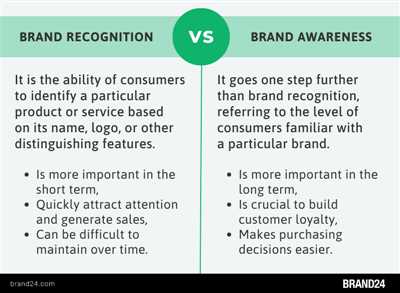
When it comes to product awareness, one of the most important drivers is the value that your products offer. Customers look for products that add value to their lives and fulfill their needs. By creating awareness around the value your products provide, you can boost their sales and generate more interest from audiences.
For example, let’s take a popular brand that sells digital cameras. They could create awareness about how their cameras help users capture high-quality photos and videos, giving them the ability to preserve precious memories. By showcasing the value their products bring, they can increase customer recognition and build trust in their brand.
Awareness strategies that add value not only benefit your sales but also build loyalty among your customers. When customers recognize the value your products bring, and they have a positive experience with them, they are more likely to become repeat customers and advocate for your products within their social circles.
One effective way to add value and increase product awareness is through digital marketing tactics. By using social media platforms and online communities, you can engage with your audience directly and learn what they look for in products. By listening to their needs and wants, you can tailor your products and marketing strategies to align with their expectations.
Don’t forget the role that visibility plays in product awareness. While your products may already be of high quality, if your target audience doesn’t know about them, it’s as if they don’t exist. Building visibility through marketing channels such as social media, search engine optimization, and influencer partnerships can help your products get in front of the right audience, generating more awareness and interest.
Another way to add value to your products is by creating a sense of community around them. For example, if you sell eco-friendly household products, you can educate your customers about the importance of sustainability and provide tips on how to live a more eco-friendly lifestyle. By positioning your brand as a thought leader in the sustainability space, you not only add value to your products but also create a loyal community of like-minded individuals.
So, how can you measure the value that your products add? One way is to look at customer feedback and reviews. If customers consistently praise your products for their quality, usefulness, and overall value, then you know you’re doing something right. Additionally, you can track metrics such as sales growth, customer satisfaction, and brand recognition to gauge the impact of your awareness strategies.
In conclusion, adding value to your products is an important aspect of building product awareness. By showcasing the value your products offer, you can generate more interest from your target audience, increase customer recognition, and build trust in your brand. Whether it’s through digital marketing tactics, building a community, or measuring customer feedback, adding value should be at the forefront of your product awareness strategy.
How to get started with your brand awareness strategy
Brand awareness is a critical component of any marketing strategy. It’s about making sure that your target audiences know who you are and what products or services you offer. With increased brand awareness, you’ll be able to generate more visibility, build trust, and increase customer loyalty.
One way to get started with your brand awareness strategy is to focus on building a strong online community. Social media platforms are popular drivers of brand recognition, and they allow you to directly engage with your audience. By using these platforms, you can interact with your customers, ask their opinions, and learn from their experiences.
Don’t forget the power of word-of-mouth marketing! Encourage your existing customers to speak positively about your brand to their friends and family. This can be done by offering incentives or simply by providing exceptional customer service.
Another important strategy is to play an active role in relevant online communities and industry events. Engage with other professionals and customers, share valuable content, and don’t be afraid to show your expertise. By doing this, you’ll not only increase your brand’s visibility, but also position yourself as a thought leader in your industry.
When it comes to digital marketing, content is key. Create valuable and informative content that adds value to your audience’s lives. This could be anything from blog posts and expert guides to how-to videos and social media updates. The more valuable content you provide, the more likely your audience is to recognize your brand and look to you for trusted information.
Measure your brand awareness strategies to find out what works best for your audience. Use analytics tools to track how much traffic your website gets, monitor engagement on social media platforms, and ask your customers how they heard about you. This data will help you fine-tune your strategy and focus on the most effective tactics.
Remember, building brand awareness takes time. It’s important to be consistent and persistent in your efforts. Stay in front of your audience, open their minds to your brand, and show them why they should choose you over the competition.
In summary, getting started with your brand awareness strategy involves building an online community, leveraging social media, encouraging word-of-mouth marketing, engaging with relevant communities, creating valuable content, measuring your efforts, and staying consistent. By implementing these strategies, you’ll be on your way to increasing brand recognition and creating a loyal customer base.
Don’t forget loyalty
When it comes to creating product awareness, it’s important to not only focus on attracting new customers but also on retaining and building loyalty with your existing customer base. Loyalty plays a crucial role in the success of any brand because it adds value to your products and keeps customers coming back for more.
Building loyalty starts with providing a positive customer experience. This can be achieved by offering high-quality products, excellent customer service, and personalized interactions. When customers have a good experience with your brand, they’re more likely to trust you and become loyal advocates for your products.
One of the most effective strategies for increasing loyalty is to engage with your customers directly, either through social media or email marketing. By staying connected with your audience and asking for their feedback, you can learn more about their needs and preferences. This valuable information could then be used to tailor your products and marketing strategies to better meet their expectations.
There are many drivers of loyalty, but one of the most important ones is recognition. Customers like to feel recognized and appreciated for their loyalty. By implementing a customer loyalty program, you can reward your most loyal customers with exclusive offers, discounts, or other incentives. This not only boosts their loyalty but also encourages them to spread the word about your brand to their friends and family.
Another effective way to generate loyalty is by building a strong online community around your brand. This can be done through social media groups, forums, or even a dedicated online platform. By providing a space for your customers to connect with each other and share their experiences, you’re creating a sense of belonging and fostering a deeper connection with your brand.
Measurement of loyalty is also important. By tracking customer retention rates, repeat purchases, and customer satisfaction scores, you can gauge the success of your loyalty-building efforts. This data can then be used to make informed decisions about your marketing strategy and to identify areas for improvement.
In summary, while it’s crucial to focus on product awareness and attracting new customers, don’t forget about loyalty. Building and maintaining loyalty adds value to your brand and increases customer retention. By providing a positive customer experience, engaging with your audience, recognizing and rewarding loyalty, and building an online community, you can create a strong foundation for long-term success.

